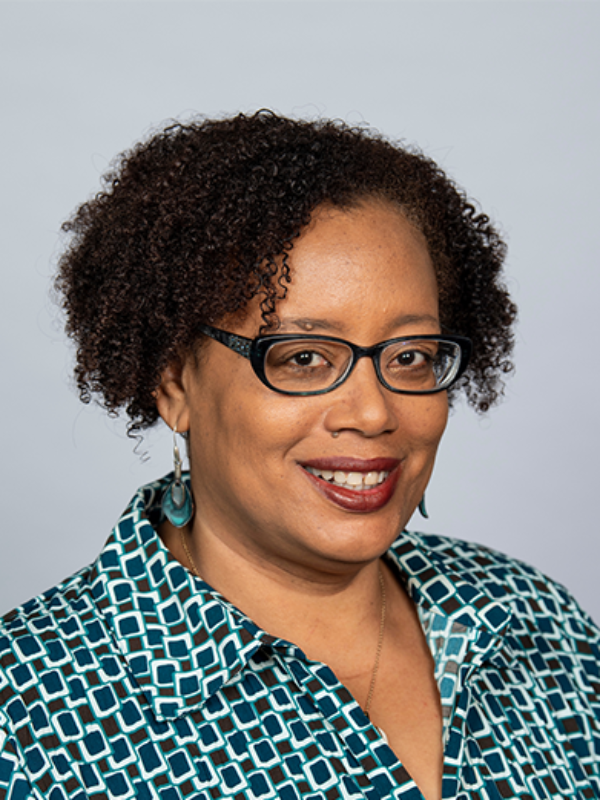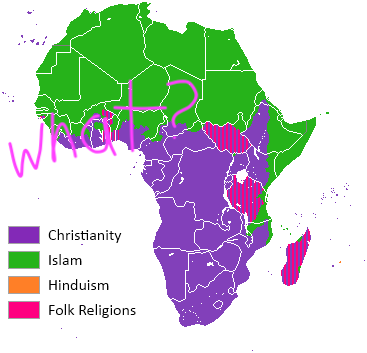Episode 402: You Don’t Know African Diasporic Religions
Transcript!
PDF transcript. Also available via our Buzzsprout page.
Shownotes
(because citations are political)
THE HISTORY OF WORLD (RELIGIONS), PART I continues with YOU DON’T KNOW AFRICAN DIASPORIC RELIGIONS. Because face it: you don’t. We won’t cover everything you need to know in 40+ minutes, but we sure will get your interest piqued and, hopefully, lay some foundations.
The 101:
(where we did the professor-work)
Today, we’re talking about African Diasporic Religions, for two reasons: first, because like we’ve been telling you for 35 episodes or so, religion is imperial. The fact that most “world religions” textbooks don’t include African Diasporic Religions? Is both white supremacist nonsense and Euro-American imperialism at work.
And second, because we think you can’t call yourself religiously literate without actually knowing what these religions are, how they came about, and why they matter--to scholars, regular folk, and their practitioners. African Diasporic Religions are beautiful, intricate practices that are also deeply pragmatic and always changing. We can’t tell you everything you need to know about them in 40 minutes, but hopefully we’ll give you enough to show you why you want to know more.
We know we can’t include everybody’s everything. So in a world or global or comparative religions class (or textbook), we make choices about what to include and who to leave out. Same for this podcast. Our goal for today and also for this season is to show you that those choices are political, that they have consequences, and that they--like the study of religion itself--have their roots in white supremacy and imperialism, whether we recognize it or not.
So few textbooks, classes, podcasts even get to African Diasporic Religions, let alone start with them. We are doing so on purpose and with our chests. But we didn’t do it alone
We were joined on this episode by two extra-special guest experts, Dr. Akissi Britton and Dr. Fadeke Castor.
Dr. Britton is an expert on race, gender, and African diasporic religions, specifically Orisa/Lucumí tradition. She is an assistant professor of Africana Studies at Rutgers University.
Dr. Castor is a Black Feminist ethnographer and African diaspora studies scholar. She is an assistant professor of Religion and Africana Studies at Northeastern University.
We talked about diaspora, Africa as a continent—not a country, and how the brutal process and experience of enslavement created African Diasporic Religions, but that those religions are living, breathing sets of practices (not relics of bygone eras).
A diaspora is a scattering of a once-geographically concentrated population. This means, among other things, that practitioners of diasporic religions have connections to places they might or might not have ever been themselves. And in the case of African Diasporic Religions, those places are on the continent of Africa.
We kept harping on Africa as a continent, and not a country, because, well, that level of ignorance and stupidity is the state of the world we’re living in. But we also talked about it because understanding the geography of Africa helps us understand the diasporas we talked about in this episode.
African Diasporic Religions are diasporic because of white Euro-American systems of imperialism + enslavement. Period. African Diasporic Religions draw on languages, practices, worldviews, and affinities in Indigneous African Religions—as Drs. Castor & Britton talked about in the episode, pieces of those languages, practices, worldviews, and affinities were often all that enslaved people could carry with them from home. We wouldn’t have this category without one of—if not the—most violent examples of what white EuroAmerican imperialism did.
In other words: African Diasporic Religions is a category created twice by imperialism: first, by the creation of an African Diaspora by the brutal enslavement of Africans; and second, as a broad category within the world religions model to attend to this diverse, broad set of historical and contemporary practices.
We promised maps. Check out these maps, darlings:
More mapping resources:
TL;DR: African Diasporic Religions are beautifully creative, intricate, and dynamic religions. People still practice them, and those practices change according to practitioners’ needs and desires. Singing, dancing, drumming, music, and other types of art often factor into practices. History and cosmology and ethics are often passed on through storytelling, songs, and performances. There’s often a big emphasis on healing, and increasingly we’re seeing ADR practitioners be leading voices for social justice in their own communities and on a global stage.
As Dr. Castor taught us this episode, these religious practices made “a way out of no way.” Colonizers and enslavers never intended these ways of being in the world, or the people practicing them for that matter, to survive. But these people and these practices have not just survived: they’re thriving.
Little Bit, Leave It
(the segment where we leave you with a little bit to remember)
We’re stealing from our UK friends and colleagues and, frankly, very trashy tv with this new segment in which we leave you with the littlest bit, a small way to remember the why the stuff of the episode matters. (The joke, nerds, is this buddy video.)
In this episode’s LBLI, Megan talked about how you’re not understanding “religion” if African Diasporic Religions aren’t part of your definition of that word. The study of religion would look a whole lot different if it centered on ADR, period.
Ilyse said that for her, thinking about “Africa” and “religion” is always a lesson in layers of racism and oversimplifying religion. North Africa is often glossed as Middle Eastern—not really African, on the one hand, and uniquely Islamic, on the other. But West Africa was and is a place that Muslims call home, and enslaved Africans from these places brought Islam to the Americas before the USA was a place. Just peep the map. See why she’s so grumpy.
If you dont know, now you know
(the segment where we get one factoid)
Beyonce incorporates a LOT of ADR in her recent work. I’m thinking specifically of Lemonade, Black Is King, and Oshun, orisha of sweet water, fertility, and a bunch of other things bc orisha are divine multitaskers. The video for “Hold Up” is a particularly vivid example, but basically any time you see Beyonce in a flowy yellow dress, there’s some Oshun subtext going on there.
Homework!
(that’s right, nerds, there’s always more to learn)
Megan assigns:
Laura Wagner’s novel Hold Tight, Don’t Let Go includes Vodou healing ceremony
Gabrielle Tesfaye, The Water Will Carry Us Home is just a stunning and haunting illustration of ADR’s survival of the transatlantic slave trade
Gene Denby, finding a way home through ‘the door of no return’ —not about ADR per se, but such a vivid, visceral account of what it’s like to stand on the ground of so much violence
Zora Neale Hurston’s iconic Tell My Horse
Fadeke Castor, Spiritual Citizenship: Transnational Pathways from Black Power to Ifá in Trinidad
Raquel Romberg, Witchcraft and Welfare: Spiritual Capital and the Business of Magic in Modern Puerto Rico
Aisha M. Beliso-De Jesús, Electric Santería Racial and Sexual Assemblages of Transnational Religion
We didn’t even get into the way rootwork and conjure build off ADR but there’s a ton of amazing stuff there, including:
Yvonne Chireau’s Black Magic: Religion and the African American Conjuring Tradition,
LeRhonda Manigault Bryant’s Talking to the Dead: Religion, Music, and Lived Memory among Gullah/Geechee Women,
and Julie Dash’s legendary film Daughters of the Dust, about which pod goals / aspirational bestie Judith Weisenfeld has written beautifully
Great insta documentary about brujeria by Sophia Galer Smith for the BBC
Here’s Megan’s witches syllabus, since ADR is a big chunk of it
Megan also re-recommends Sylvester Johnson’s African American Religions 1500-2000, not because he spends a ton of time on ADR but he helps us not assume that the story of African religions is just Christian enslavers v. enslaved ADR practitioners. The religious history of African imperialism and enslavement is more complicated than that, and we would never want to portray Africans, enslaved or otherwise, as only ever acted upon. They are agents in their own right, and the survival and thriving of ADR is a testament to that agency and ingenuity.
Ilyse suggests:
This book is JUST out and it has an essay by our guest, Dr. Castor, as well as other pals of the pod. Embodying Black Religions in Africa and its Diasporas (2021)
Governing Spirits by Reinaldo L. Román is all about freedom of religion in Cuba and Puerto Rico, and it focuses on Santeria, spiritism, and other African diasporic religions.
OK, what IRMF is good at is Islamic studies:
Thinking about Islam in the African Diaspora, then Edward Curtis’s Call of Bilal
Rudolph T. Ware III’s mandatory monograph, The Walking Quran, is less about African Disporic religions as we’ve framed them here, but it is 100000% about West African Islam as a site of resistance to colonial power and slave traders, and tracing Qur’anic knowledge over 1000 years in this region.
Our friend Greg at Classical Ideas has done a lot with African Diasporic religions, and experts on African Diasporic religions, so I urge you to check them out.
Friend of our pod Vicki Brennan talking about her work on Yoruba Christianity,
Classical Ideas also has a great episode on Vodou and the Movies with Emily Crews: \
More here!
Another digital resource you want is The Crossroads Project, headed up by former guests Judith Weisenfeld and Anthea Butler as well as Lerone Martin.
Nerds of the Week!
Thanks for listening, rating and reviewing. This week’s nerds are: Monster_Seltzer, AcousticGuru, Classical Ideas, SophieBeanZee, and FlyGirl278930. You make our whole day.




